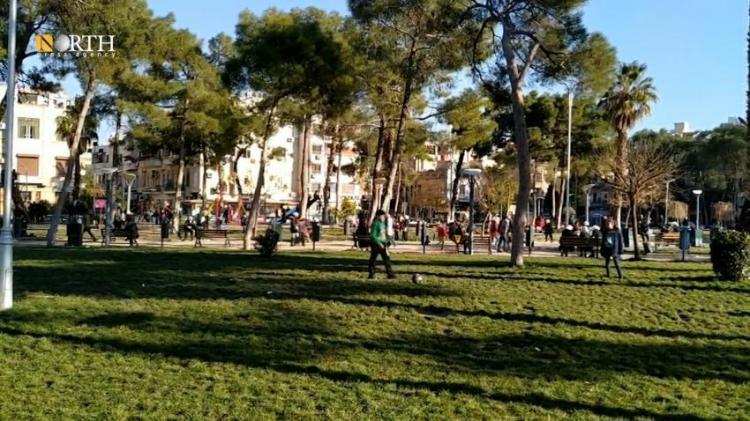Damascus public parks, a destination to escape the troubles of life and war
Damascus – North-Press Agency
The public parks in the Syrian capital, Damascus are witnessing a heavy attendance by the citizens, where the green spaces provide an opportunity for thousands of people to escape the troubles of daily life, associated with the war as high prices and psychological pressures, in addition to the frequent interruption of electricity and other living difficulties.
Muhammad Saadi, a resident of Damascus told North-Press: "I used to visit the park, which is adjacent to my house for several purposes, the most important of which is the request for psychological comfort and physical health, and the inability to sit in cafes and restaurants because of the high costs of living, which is an additional reason to take the park as a destination for me.
Saadi, who exceeded the sixth decade of his life, added that the migration of his three children outside the country has exhausted him because he can no longer find support for him, so he searches through wandering in the public park for positive energy and to escape the power interruption.
The United Nations Children's Fund (UNICEF) said in its report entitled "Syria Crisis Fast Facts,” which was published last August that four out of every five Syrians live below the poverty line, forcing families and even children to take maximum measures to survive.
On the other hand, the young Khaled al-Basr, who came to Damascus on a working visit, said that he is going to the park instead of the cafes while he finishes his work in Damascus, since he is coming from the city of Deir ez-Zor.
Yasser Sebaa mentioned other aspects of going to the parks, where he finds that it has a health benefit and it compensates for visiting the doctor, so he walks about an hour every day, and he believes it is better than sitting in restaurants that are full of smokers.
The war has deprived the residents of Damascus of heading towards the nearby rural and tourist areas, where a study by the United Nations Research and Training Institute published last year, indicated that 12,781 of the buildings were totally or partially destroyed in Eastern Ghouta.
Moein Barghawi and Mahmoud Martinez find that the parks as a psychological refuge nowadays and a place for the people who underwent difficult conditions of war to get some rest, especially when the weather is cool and without material cost in light of the inability to go to restaurants that costs a lot.
A study conducted by the Damascus Center for Research and Studies (DCRS) published last year, revealed that most of the Syrian children and adolescents suffer from mental illnesses as a result of the war, such as anxiety, depression and other disorders.

